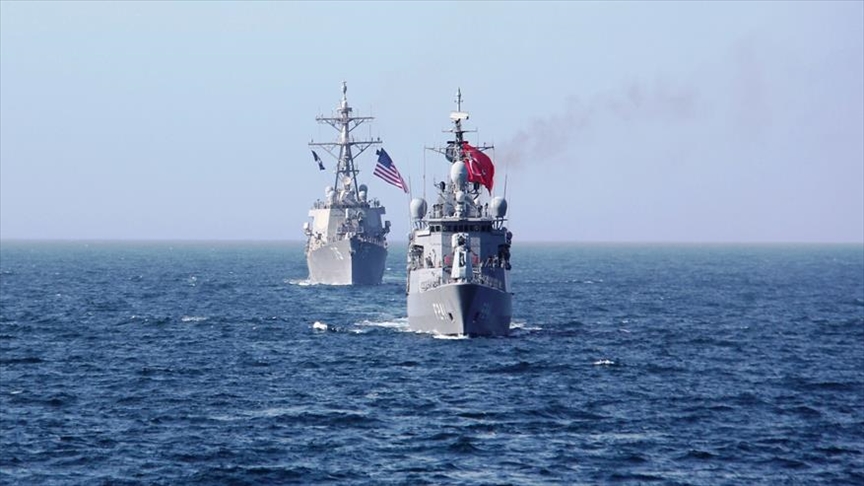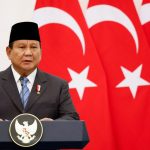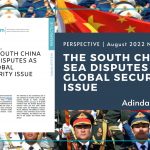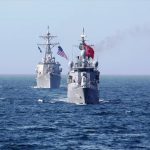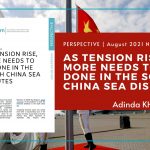The first face-to-face meeting between US President Joe Biden and Turkish President Recep Tayyip Erdogan on the sidelines of the NATO Summit on the 14th of June brought a positive vibe despite the strained relations between the two countries.
The meeting highlighted the importance of the NATO alliance and seemed clear that both President Erdogan and Biden intend to work towards better relations. Still, overarching issues remain, particularly Turkey’s acquisition of the S-400 missile defence system from Russia and ensuing US sanctions. Another issue includes American ties with the YPG/PKK, a terrorist organization that the US has worked with to fight against DAESH/ISIS in Northern Syria. Ankara has been demanding for Washington to cut ties with the YPG/PKK.
While these disagreements don’t expect to be resolved immediately, there are new opportunities for increased cooperation between the two countries. A possible area of note is in the Black Sea where tensions are high between Russia and Ukraine while the long-term interests in energy for both the United States and Turkey.
In late August 2020, President Erdogan announced that Turkish Petroleum Corporation’s (TPAO) drilling ship Fatih had discovered 320 billion cubic meters (bcm) i.e. 11 trillion cubic feet (tcf) of natural gas reserves, within the western part of its Exclusive Economic Zone (EEZ). The discovery of the gas natural reserves has been seen as a development for Turkey’s energy security, since Ankara has historically been reliant on imports of hydrocarbons. In The National News, Thomas Purdie, an analyst with Wood Mackenzie’s Upstream Research mentioned, “Even if the official figure given by President Recep Tayyip Erdogan is treated as an estimate of gas in place, this is Turkey’s biggest find – by a wide margin – and one of the largest global discoveries of 2020.”
Turkey has relied upon piped gas from Russia, Azerbaijan and Iran and its share of liquefied natural gas (LNG) imports has continued to grow. However, experts predicted that the discovery may have an implication on the future of Ankara’s LNG imports. By early June, Turkey has discovered 135 billion cubic metres of additional natural gas in the southern Black Sea, raising the total discovery in the region to 540 billion cubic metres. These discoveries may transform the future of Turkey’s energy security and will reduce Ankara’s dependency on Russia in terms of natural gas, this may also change the relations between the two.
In February this year, Ankara and Washington were conducting a joint maritime military exercise in the Black Sea. Turkey’s National Defence Ministry stated, “The training conducted for the fundamental types of naval warfare has further strengthened cooperation between the Naval Forces of the two countries and has contributed to their interoperability.” In June, as reported by Daily Sabah, Turkey shared its data on its hydrocarbon discoveries with US energy majors Chevron and Exxon Mobil ahead of possible cooperation in extracting the gas, a Turkish official with knowledge of the matter told Reuters.
The sharing of information between the two countries came just prior to the meeting between President Biden and President Erdogan. It is speculated that this revelation was made as a goodwill gesture.
When asked about whether this was a principal reason why the meeting between the two leaders appeared to have concluded on a positive note, Matthew Bryza, former US Ambassador to Azerbaijan and a senior fellow at the Atlantic Council, don’t think that the information sharing had any impact on the calculus of President Biden’s team in terms of having a constructive meeting with their Turkish counterparts, rather it was Turkish Government hoping to make a good impression that led Turkey to share that information. The effort didn’t work in moving the needle on larger issues, according to Ambassador Bryza, but it was still good that the information was shared.
Ambassador Bryza also sees that President Biden a priori wants to improve US-Turkey relations, but faces some serious domestic political constraints, most importantly the anger of key US senators of both political parties about the Turkish purchase of the Russian S-400 air defense system, while there is really no chance that Turkey will move those missiles outside Turkey, as it is politically impossible for President Erdogan to do so.
The Black Sea acts as a critical maritime intersection between Europe, Asia Minor, and the Caucasus. For Moscow, the body of water is important for its geoeconomics strategy: to project their power and influence in the Mediterranean. Additionally, three NATO member states border the sea: Turkey, Bulgaria and Romania. Russia’s illegal annexation of Crimea in 2014 has understandably heightened the concerns of these three countries.
Meanwhile, Russia’s growing military presence seemingly aims to counter NATO’s influence. Recently, it was reported that Moscow has 25,000 personnel, 21 large warships, 7 submarines, and 200 support ships in its Black Sea fleet. Russia has also gathered combat-ready forces close to the Ukrainian border in what is considered “the largest massing of Russian troops since the illegal annexation of Crimea in 2014,” according to NATO Secretary-General Jens Stoltenberg.
Last month, there was an incident in the sea that involved a Russian warship firing shells and a warplane dropping bombs in the path of the HMS Defender, a British Royal Navy destroyer. President Vladimir Putin later stated that the incident would have not triggered a global conflict, since the West knows it can’t win such war. The statement showed how serious the tension is between Moscow and NATO’s southern flank. To counter the most recent security threat, as well as to respond to Russia’s illegal annexation of Crimea from Ukraine, the US Navy along with NATO partners have increased their maritime presence dramatically.
In February, three US Navy ships were patrolling alongside other NATO and Ukrainian warships and taking part in naval exercises that were postponed last year due to the Covid-19 pandemic. In early July, Ukraine and NATO also conducted joint drills involving dozens of warships. The Sea Breeze 2021 maneuvers involved 30 warships and 40 aircraft. Meanwhile, Moscow also conducted a series of parallel drills in the Black Sea and southwestern Russia with warplanes practicing bombing runs and long-range air defense missiles’ deploying to protect the coast.
Turkey on its own has also sought to contain Moscow’s aggression by engaging in security and defense cooperation with Ukraine. After signing a bilateral deal last December on technology transfers and production of corvettes for Ukraine’s navy and combat unmanned aerial vehicles (UAVs) for its army, a joint production project of the Akinci strike UAV with an engine by Ivchenko-Progress is also expected. In April, it was also reported that Ukraine started producing engines for Turkish unmanned military aircraft and combat helicopters. Meanwhile, the US has also sent assistance to Ukraine to improve its defense with a $150 million security package prior to Presiden Biden’s meeting with President Putin in Geneva.
On the question of how energy and security cooperation between the US and Turkey in the Black Sea might influence larger bilateral relations, Ambassador Bryza explained that it is too early to tell whether such cooperation will have an impact on bilateral relations. For now, the US has no strategic policy supporting Turkey’s exploration. It is certainly possible that there will be a commercial agreement in the future between a US company like Exxon which has been working in Romania and Turkish Petroleum Cooperation (TPAO), but that might take place without any encouragement, let alone coordination, from the US government. What could be a game changer is if even larger national gas deposits are discovered and subsequently a gas pipeline to Ukraine, either directly or via Romania, is constructed.
Whether the possible energy cooperation will have any effect on the larger issues bedeviling the bilateral relationship, such as the S-400 air defence system acquisition, Ambassador Bryza stated that the only way to resolve the issue, in the long run, is for the US and Turkey to build cooperation in general on others issues so that its possible for Turkey to come up with a mutually acceptable solution.
For the time being, the smartest thing is for the US and Turkey to do is to make a progress in other issues, such as in the Black Sea, Afghanistan, Libya, or Syria.
Assuming that the President Biden administration is serious about its commitment to curb Russian expansion at Ukraine’s expense, the idea of Washington and Ankara working together, along with Romania and Bulgaria, in the Black Sea shouldn’t be a particularly tough sell. Such cooperation should build up the trust needed to solve the bigger ticket items.
This “Analysis” article was published first in the THO Website on 07 August 2021.
